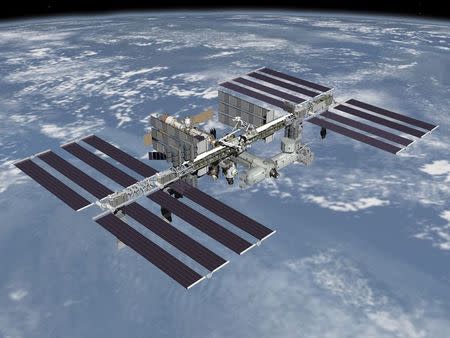Astronauts shelter in Russia part of space station after alarm

By Irene Klotz CAPE CANAVERAL, Fla. (Reuters) - Astronauts evacuated the U.S. section of the International Space Station on Wednesday and moved into the Russian side after a signal raised concerns of an ammonia leak, though early analysis suggested it was a false alarm, NASA said. NASA's Butch Wilmore, the station commander, together with Terry Virts, a flight engineer with NASA, and Samantha Cristoforetti, a flight engineer with the European Space Agency, abandoned the U.S. side of the orbital outpost after an alarm sounded around 4 a.m. (0900 GMT). The trio joined three Russian crewmates on the Russian side of the station, which is a partnership of 15 nations, overseen by the United States and Russia. The precautionary move came as ground control teams detected increased pressure in a water line in one of the station’s two cooling loops, a possible indication that ammonia many have leaked into the line. The crew of the $100 billion research laboratory, which is in orbit about 260 miles (418 km) above Earth, was never in any danger, NASA said. Later, NASA mission commentator Rob Navias said there was no hard data to indicate a leak. “It's becoming a stronger case that this is a false indication, which is great news," Jim Kelly, an astronaut at Mission Control in Houston, radioed to the crew shortly before 8:30 a.m. (1330 GMT). "Outstanding news,” replied Wilmore. “We’ll be ready to do whatever you need us to do when the time comes." NASA said. Kelly told the crew Mission Control is assessing the situation to determine if the three could return to the U.S. section later on Wednesday. There is enough food and air purification equipment for all six crewmembers to live in the Russian side of the station for around eight days, possibly longer, Navias said. (Additional reporting by Timothy Heritage and Tatyana Ustinova; Editing by Alden Bentley)

